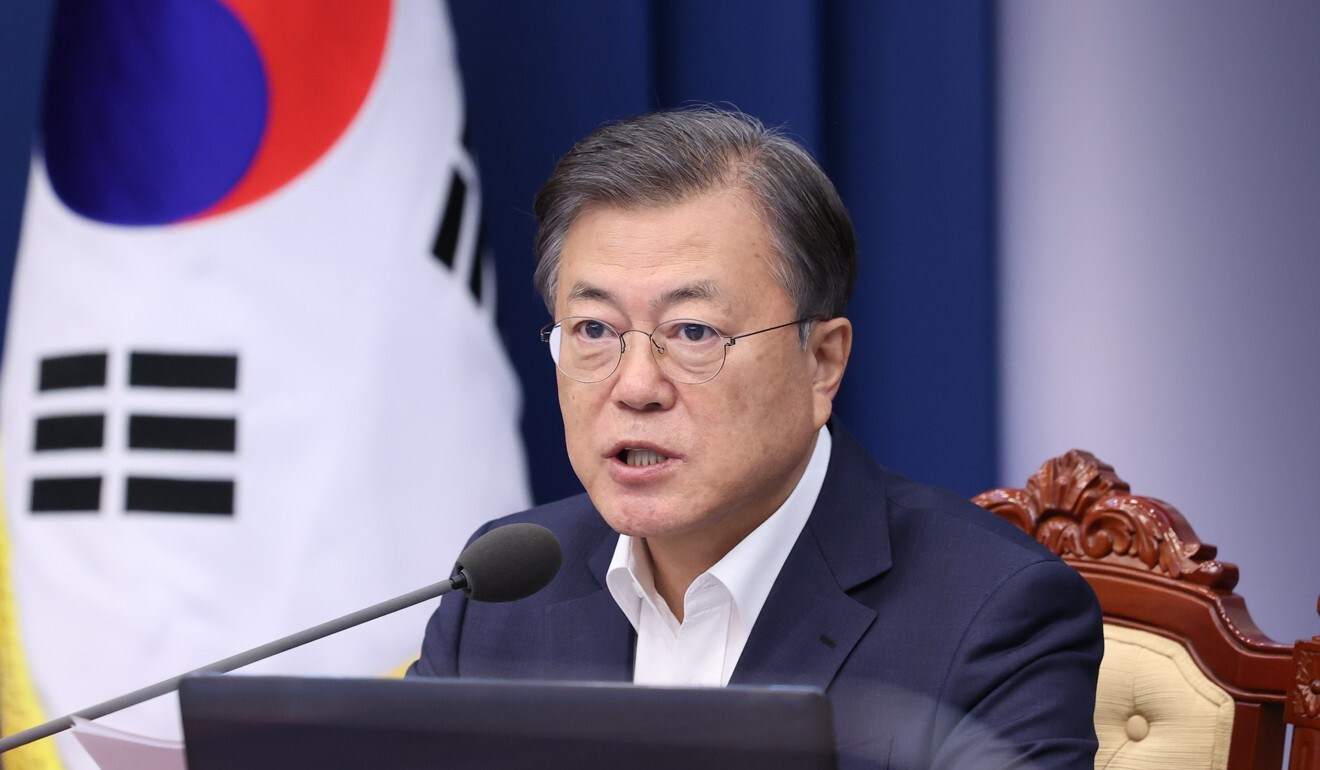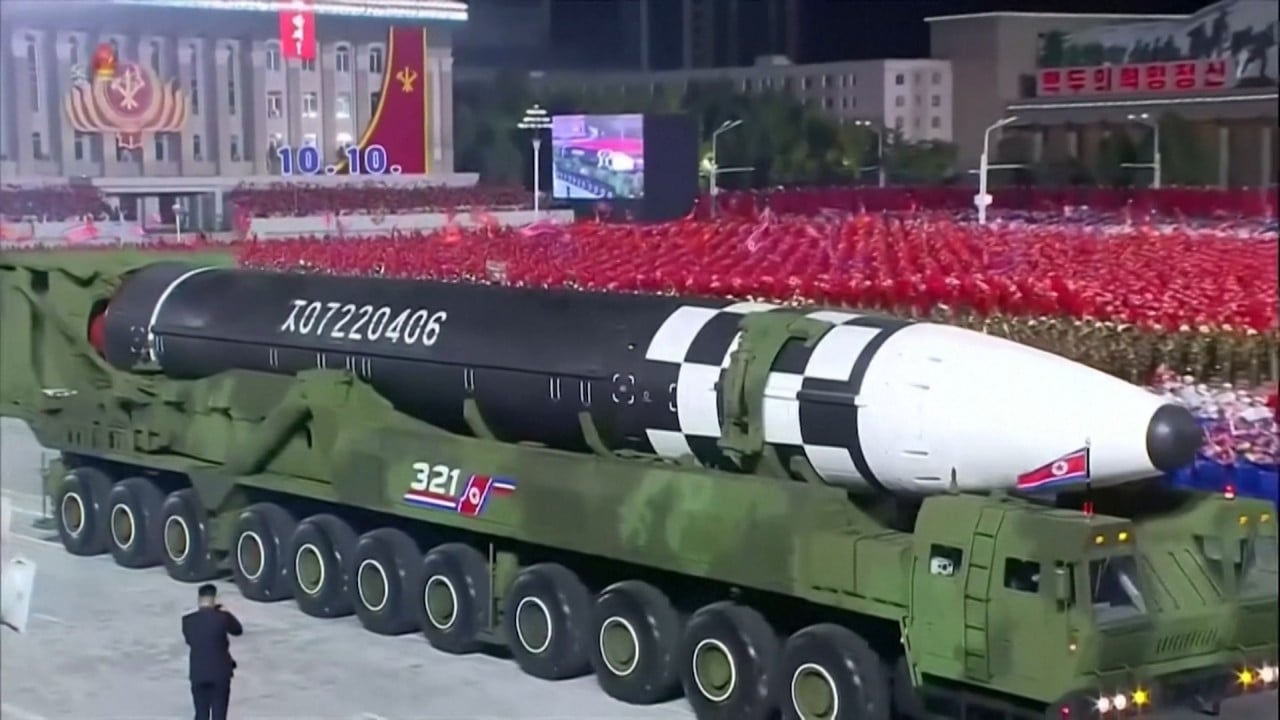
South Korea affirms cool Japan relations, warm China ties in defence white paper
- Seoul has dropped a reference to Tokyo as a ‘partner’ in the document, but pledged to develop closer ties with Beijing – prompting a reaction from Washington
- An analyst says the paper, written last year, failed to take into account growing momentum within the Moon administration to normalise ties with Japan
The 2020 Defence White Paper, published on Tuesday, described South Korea and Japan as “close neighbours”, in contrast to the previous biennial report published in early 2019 that described the countries as “geographically and culturally close neighbours as well as partners cooperating for global peace and prosperity”.
Xi charms Moon as China and US compete for an ally in South Korea
But Professor Lee Won-deog of Kukmin University, an expert on Korea-Japan relations, said the white paper, edited months earlier, had failed to keep up with “subtle changes” in Seoul’s policy stance towards Tokyo.

South Korea’s foreign ministry later said Seoul would not seek additional compensation from Tokyo and would try its best to “reach an amicable settlement by communicating with the comfort women”, while Moon last week told a briefing for security officials that Seoul and Tokyo should “not stay in the past” – a reference to the tensions that still simmer between the two countries over Japan’s colonial history.
However, the South Korean defence ministry official who briefed journalists on Tuesday about the white paper defended the decision to describe South Korea and Japan as “neighbours”, due to “undesirable relations over various issues”.
Moon says South Korea will not take sides in US-China rivalry
The white paper reeled off a list of issues that would impede “forward-looking defence relations” between the countries. Among them were “distorted perceptions” about Japan’s colonial past still harboured by Japanese political leaders; Japan laying a claim to South Korea’s Dokdo islets, known as Takeshima in Japan; a 2018 incident in which a Japanese military surveillance plane flew too close to a South Korean navy vessel, prompting the latter to lock on to the plane with its fire-control radar; and Japan’s 2019 export controls on some hi-tech products to South Korea in retaliation over decisions by South Korean courts ordering Japanese companies to compensate the families of Koreans who were forced into labour during World War II.
In response, Japan’s defence ministry on Tuesday called in South Korea’s military attaché in Tokyo and expressed regret that the white paper blamed Japan for hampering military cooperation.
John Supple, a spokesperson for the US Department of Defense, on Tuesday said Washington would continue to expand cooperation among the US, South Korea and Japan.
This was “vital to the maintenance of regional peace, prosperity, and stability – to include addressing the North Korea nuclear and ballistic missile threat and maintaining the rules-based international order,” he said in emailed responses to South Korean news agency Yonhap.

02:49
North Korea’s new ‘monster’ intercontinental ballistic missiles on show at military parade
Yonhap, in its report, described the revised description of Japan in the white paper as a “downgrade” that was a tit-for-tat measure after Tokyo’s annual defence white paper last year dropped a passage that had appeared in its 2019 version, which said Japan planned to continue defence cooperation with South Korea.
Tokyo’s paper also suggested South Korea was a lower priority than other countries with which it was seeking defence cooperation, a far cry from the 2016 paper that said South Korea was “the most important neighbouring country, which shares strategic interests, and is extremely vital to Japan in geopolitical terms”.
The 2016 version continued: “In addition, the two countries share many strategic interests as allies of the US. Therefore, even if difficult issues occasionally arise, close collaboration between the two countries on the security front has enormous significance for the peace and stability of the Asia-Pacific region.”
Leaving Seoul: is a push to move the capital gaining ground among South Koreans?
In 2019 alone, the North carried out a total of 13 missile tests and rolled out several new types of ballistic missiles, including a submarine-launched ballistic missile, the white paper noted.
As for Pyongyang’s nuclear stockpiles, the latest document maintained its estimate that the hermit nation possessed 50kg of weapons-grade plutonium, enough for up to 10 nuclear weapons, and that its technology to miniaturise a nuclear warhead had reached a “considerable” level.

